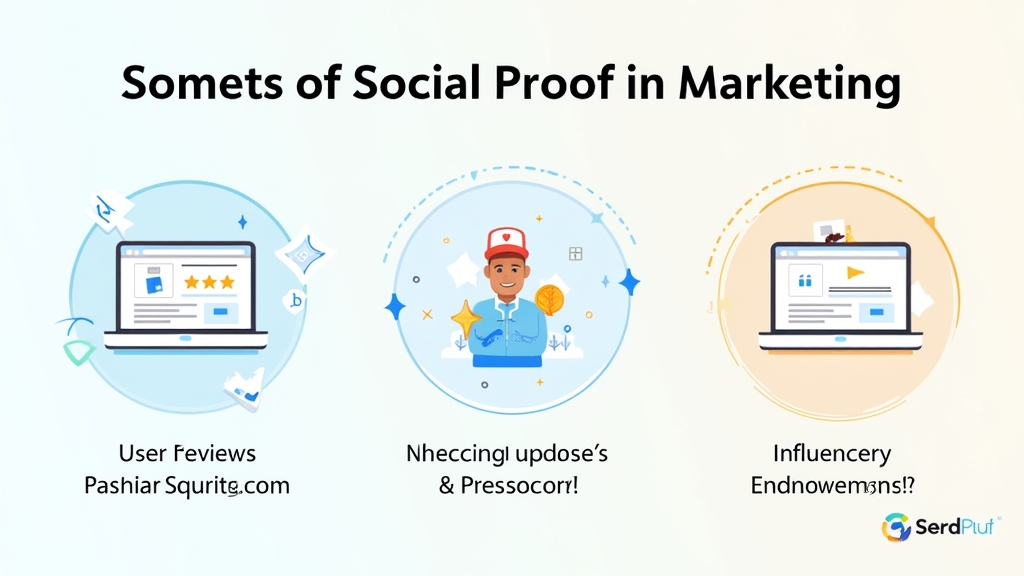The Power of Social Proof in Marketing: How to Leverage Trust and Credibility
Introduction
In today’s digital age, consumers are bombarded with choices. With so many options available, how do you decide what to buy? This is where social proof comes into play. Social proof is the idea that people will follow the actions of others when making decisions. It’s a powerful tool in marketing because it builds trust and credibility. In this article, you’ll learn how to leverage social proof effectively to enhance your marketing strategies and connect with your audience.
What is Social Proof?
Definition and Examples
Social proof refers to the psychological phenomenon where individuals look to the behavior of others to guide their own actions. For example, if you see a restaurant bustling with customers, you’re likely to think it’s good and want to eat there too. Other examples include online reviews, testimonials from satisfied customers, or even social media likes and shares.
Different Types of Social Proof
There are several types of social proof that marketers can utilize:
- Expert Social Proof: Endorsements from industry experts or celebrities.
- User Social Proof: Reviews and ratings from everyday users.
- Wisdom of the Crowds: Popularity indicators like follower counts or sales numbers.
- Certification: Badges or seals from trusted organizations.
Each type serves as a signal that helps potential customers feel more confident in their purchasing decisions.
How Social Proof Influences Consumer Behavior
Psychological Mechanisms Behind Social Proof
Social proof works on several psychological mechanisms. One key factor is conformity; people often want to fit in with others around them. When they see many people using a product or service, they may feel compelled to join in. Additionally, there’s the principle of reciprocity—when someone sees positive feedback about a brand, they might feel inclined to share their own positive experience.
Case Studies: Successful Use of Social Proof
Many brands have successfully used social proof in their marketing campaigns. For instance, Airbnb showcases user reviews prominently on its site. This not only highlights customer satisfaction but also encourages new users to book accommodations confidently. Similarly, Amazon uses customer ratings extensively; products with higher ratings tend to sell better because shoppers trust the opinions of previous buyers.
Strategies to Implement Social Proof in Marketing Campaigns
User Reviews and Testimonials
Encouraging user reviews can significantly boost your brand’s credibility. You can ask satisfied customers for testimonials or create platforms where users can leave feedback easily. Displaying these reviews on your website can help potential buyers feel more secure about their choices.
Influencer Marketing and Endorsements
Partnering with influencers who align with your brand values can amplify your reach while providing authentic endorsements. When an influencer shares their positive experiences with your product, it acts as powerful social proof for their followers.
Displaying Customer Statistics and Usage Data
Sharing statistics about how many people use your product or service can be compelling evidence for new customers considering a purchase. For example, stating “Over 1 million happy customers” creates an impression that many have already chosen your brand over competitors.
Best Practices for Utilizing Social Proof Effectively
Authenticity vs. Manipulation
It’s crucial that any form of social proof you use feels genuine rather than forced or manipulated. Customers are savvy; they can often tell when something feels staged or insincere which could damage trust instead of building it.
Timing and Placement of Social Proof Elements
The placement of social proof elements matters greatly too! Ensure they appear at critical points during the customer journey—like near call-to-action buttons—to maximize impact without overwhelming visitors.
Measuring the Impact of Social Proof on Marketing Success
Key Metrics to Track
To understand how well your social proof strategies work, track metrics such as conversion rates before and after implementing changes based on social proof tactics. Also monitor engagement levels on testimonials or review sections for insights into consumer interest.
Tools for Analyzing Social Proof Effectiveness
There are various tools available for analyzing effectiveness including Google Analytics for tracking conversions related directly back through specific campaigns featuring social proofs like user reviews or influencer partnerships.
Challenges and Limitations of Using Social Proof
Overcoming Negative Feedback
While positive feedback is great for business growth, negative comments can pose challenges too! Addressing negative feedback promptly shows potential customers that you care about improvement while maintaining transparency regarding issues faced by some clients previously encountered during transactions made through services offered by businesses alike yours!
Balancing Quantity with Quality
Having numerous reviews isn’t always beneficial if those reviews lack quality content! Strive towards obtaining detailed insights rather than just high numbers alone; this way prospective buyers gain valuable information leading them closer toward making informed decisions based off real-life experiences shared openly amongst fellow consumers!
Conclusion
As we move forward into an increasingly digital marketplace filled with competition vying attention away from one another—it becomes essential now more than ever before leveraging effective methods surrounding aspects such as trustworthiness gained via utilizing forms associated closely tied together under concepts known collectively referred simply put “social proofs.” By understanding its importance alongside best practices outlined above—you’ll be well-equipped navigating future endeavors successfully!
📢 Explore More: Continue Your Journey!
If this article helped you understand how important trust is in marketing strategies through effective usage surrounding “social proofs,” check out The Role of Customer Feedback in Business Growth! It covers valuable insights helping you grasp why listening closely matters immensely within any successful venture undertaken moving forward.














![NEEWER 55W 18"/45cm Ring Light Kit [New Version], 5600K Dimmable ...](https://m.media-amazon.com/images/I/414QLqvZWLL._AC_.jpg)








